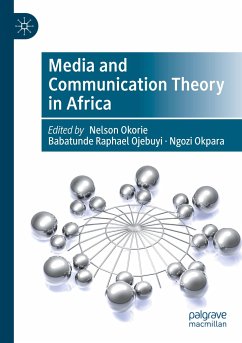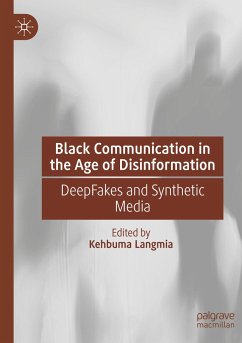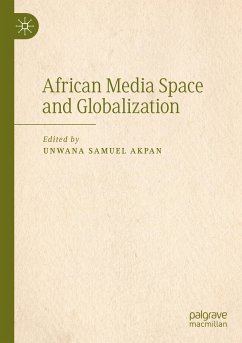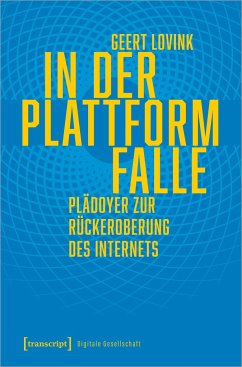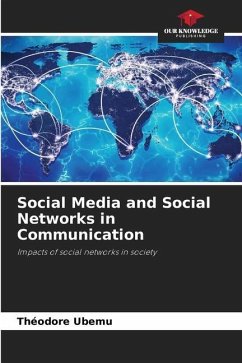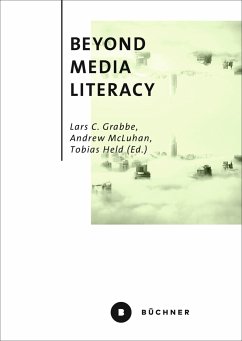
Media and Communication Theory in Africa

PAYBACK Punkte
57 °P sammeln!
This contributed volume explores theories of media and communication and focuses on providing African perspectives on global conversations. Using broad cases relating to media and communication theories, this book explores socio-cultural issues affecting most modern African societies, providing a conceptual and empirical framework for explicating the potential place of media techniques and structures in Africa. As a good template for understanding and applying communication theories and approaches in the African context, the volume is a priceless asset for Media and Communication scholars.
This contributed volume explores theories of media and communication and focuses on providing African perspectives on global conversations. Using broad cases relating to media and communication theories, this book explores socio-cultural issues affecting most modern African societies, providing a conceptual and empirical framework for explicating the potential place of media techniques and structures in Africa. As a good template for understanding and applying communication theories and approaches in the African context, the volume is a priceless asset for Media and Communication scholars.





